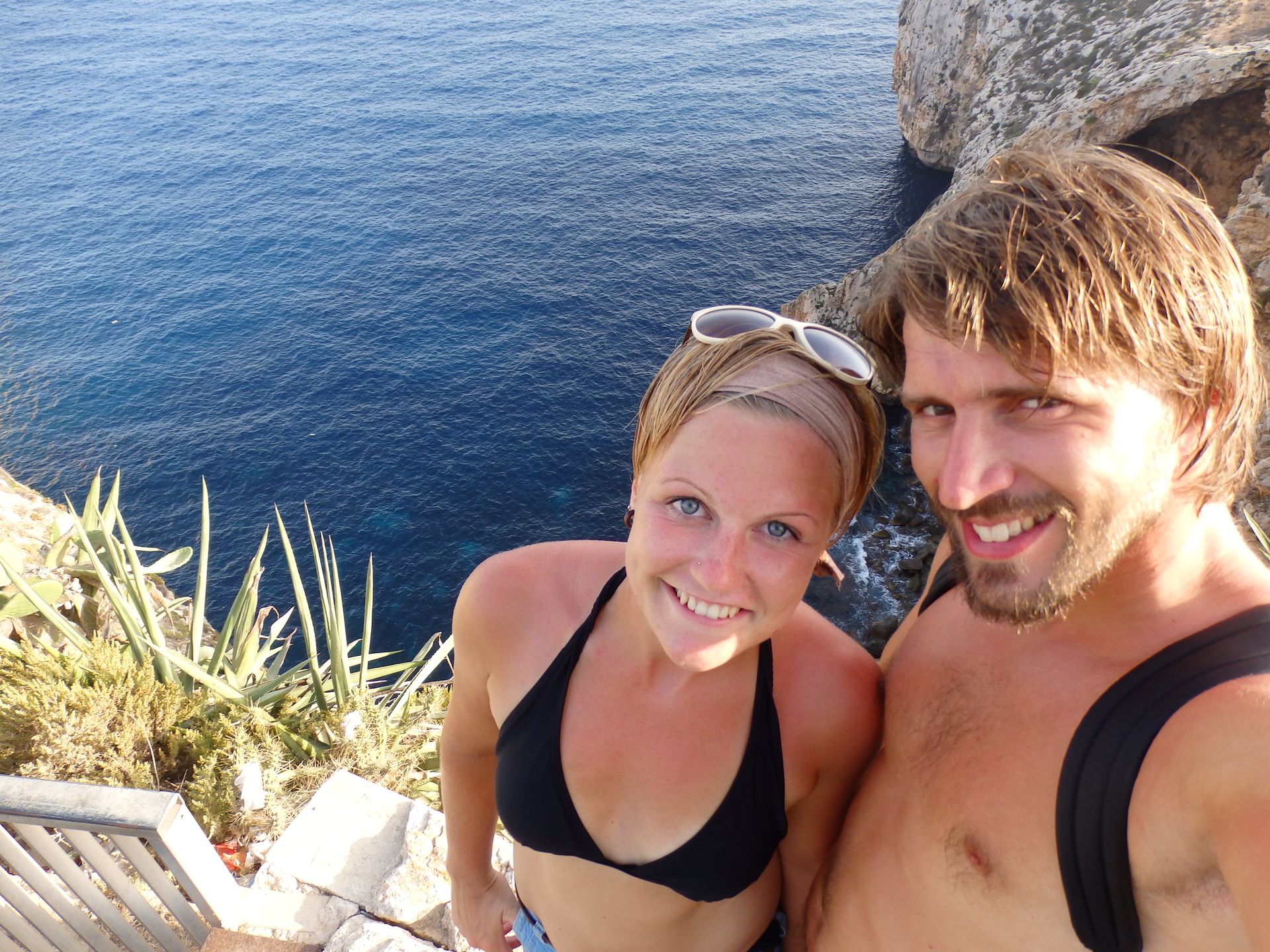Acclimatization to High Altitude III - Iliniza Norte 5126 m
Foillsichte: 31.01.2019
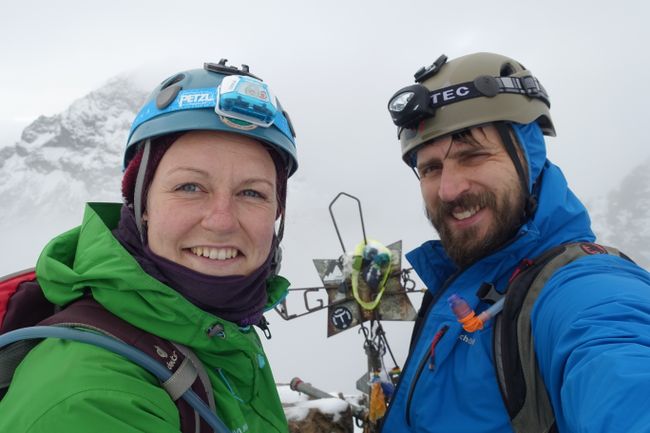
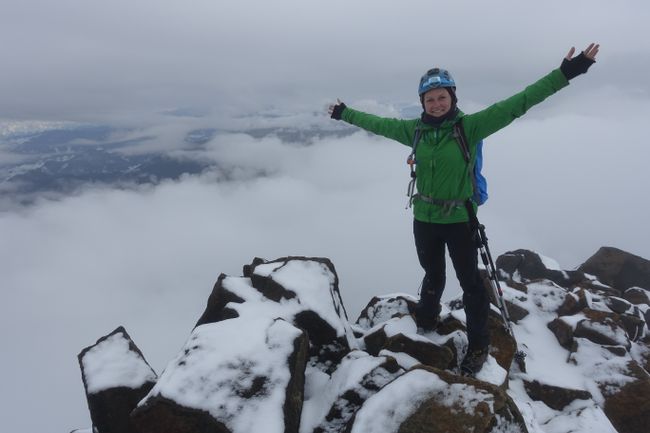
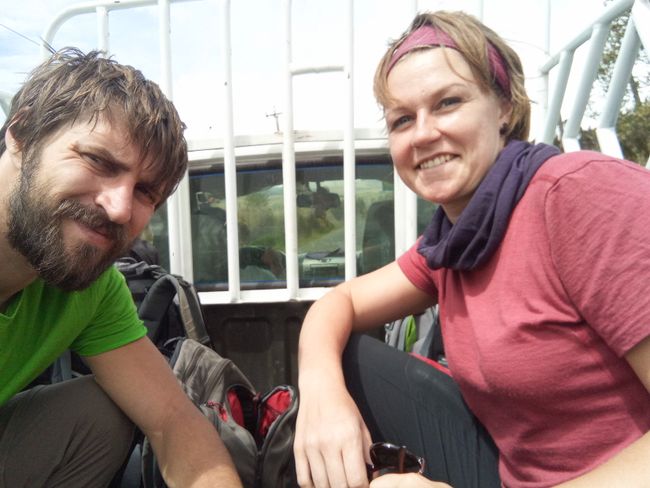
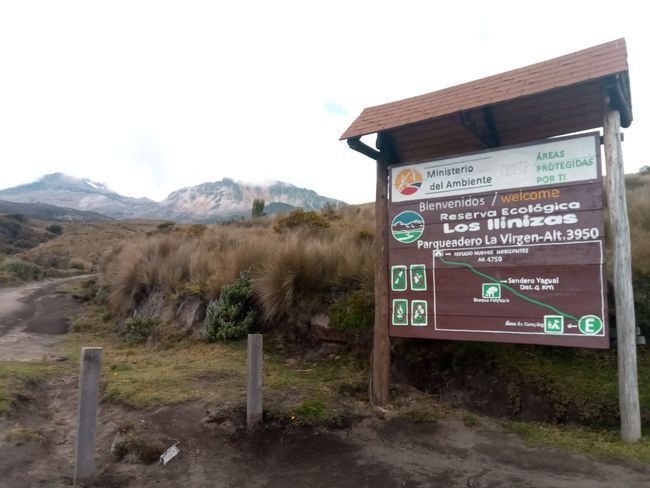
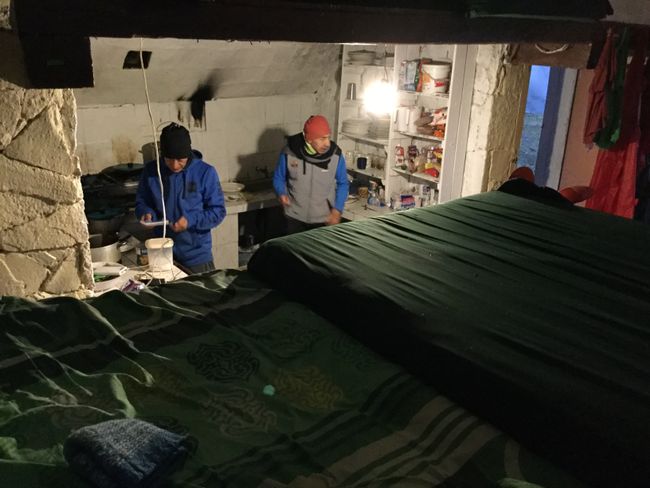
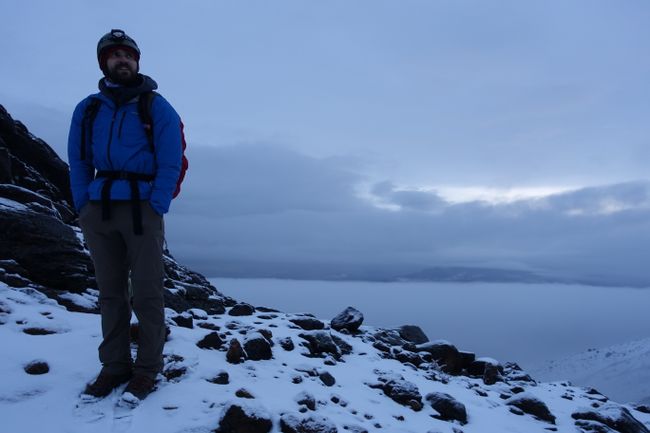
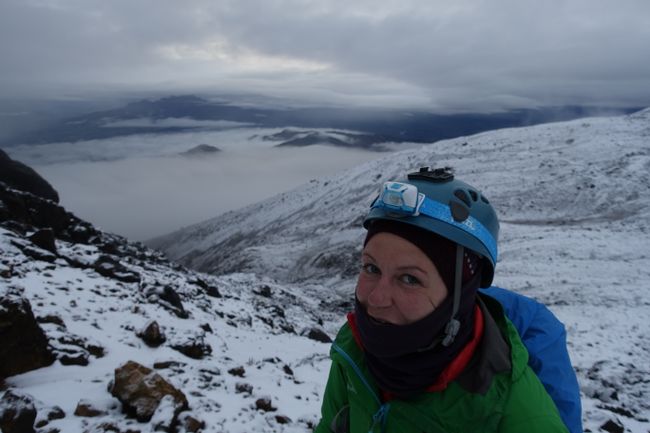
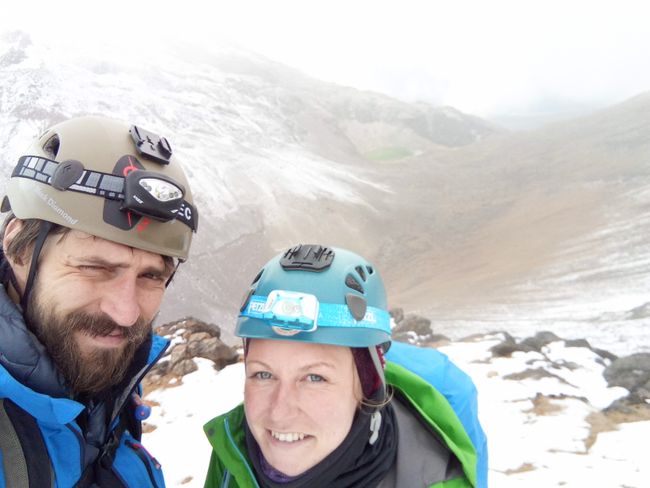
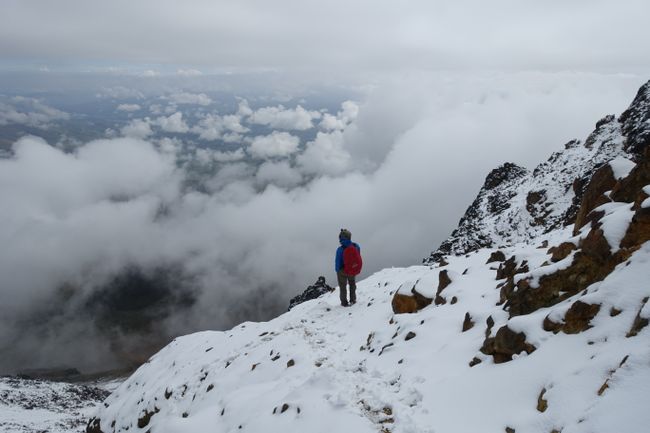
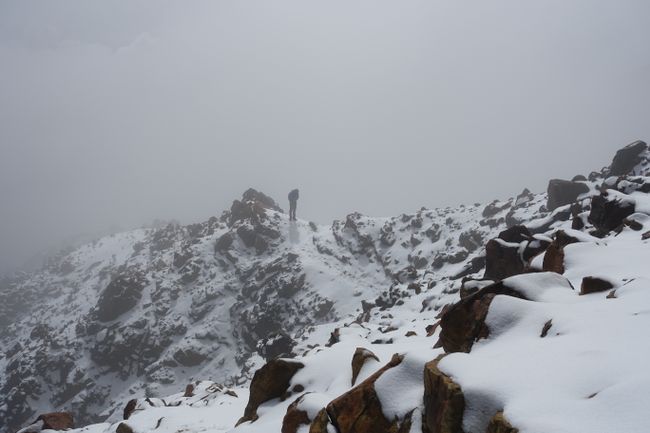
Subscribe to Newsletter
Our last mission for acclimatization was the summit of Iliniza Norte at 5126 m. Since the 'big tour' was supposed to start on Friday, we planned the two-day Iliniza Tour for Monday/Tuesday. On Monday morning, everything was already packed and we were almost ready to go, but our plan was foiled by protesting natives who had been demonstrating against the increase in fuel prices since early morning, blocking about 1/3 of our bus route. The weather forecast for Tuesday/Wednesday was better anyway, so we postponed the tour by one day.
On Tuesday morning, we started even earlier - our backpacks were already prepared - to the small town of El Chaupi, where we were taken to the starting point, the parking lot 'La Virgen', on the back of a SUV. Under the bright sunshine, we set off on the way to the refuge, where we wanted to spend the night. At the beginning of the path, we passed lush orange and blue flowering bushes, tall grasses, and gnarled trees on the sandy trail. The landscape changed with every meter of altitude and became increasingly sandy, rocky, and barren. Soon the vegetation consisted only of low grasses, mosses, and lichens, which made an effort to glow in bright colors. The higher we climbed, the faster our heart rate became. The altitude combined with the backpacks challenged us and took some strength, but the view over the plain, dotted with long-extinct volcanoes, was outstanding! Unfortunately, as predicted, dark clouds were gathering behind us and after about 45 minutes of hiking, it started to rain. This did not make the steep path any more pleasant, but we only had a short distance to cover on the first day (about 2.5 hours of ascent for about 800 meters of altitude). Just before reaching the refuge, the rain stopped and we could enjoy the view over the valley again during the numerous breaks.
The hut is quite comfortable given the circumstances: there is a gas stove (on which we cooked our noodles immediately after arrival), some more or less clean sleeping places, a place to eat, and even the power generator was turned on for an hour in the evening. However, there is no insulation. In combination with the holes in the walls, this means that the interior temperature is almost the same as the outside temperature: in our case, it was 0 degrees at night. Fortunately, this was not a challenge for our warm sleeping bags! However, falling asleep at this altitude presented a challenge. The heart pounds, the pulse becomes faster and it feels as if the chest is constricted. I once again benefited from my gift of being able to sleep anywhere and anytime - in contrast to Johannes, who unfortunately hardly slept at all during the night...
The next morning, the alarm clock rang at 5 o'clock, as we wanted to start for the summit as early as possible. Unfortunately, we found that it had snowed during the night - not ideal conditions for the summit ascent, especially since, as we had been informed, the trail is poorly marked in some places. However, since we had crampons and a hiking map on our smartphones, it was worth a try... In the early morning, we set off with our headlamps, initially taking frequent breaks because breathing was so exhausting, until the path became steeper and the rocks became more brittle - without the crampons, we would probably have had to turn back very soon, but with them we made good progress according to the circumstances. We also had to use the GPS to verify if we were still on the right path. At first, we climbed steeply along the rocks, then across a ridge to the next rugged ascent. Shortly before the final stretch to the summit, the 'Paso de la Muerte', we almost turned back because we were not sure which side of the rock we had to climb. And with the weather, we did not necessarily want to take a wrong turn on a path called 'Paso de la Muerte'... After some trial and error, we finally found the (presumably) correct path and shortly thereafter reached the summit. As a reward for the strenuous ascent, the cloud cover soon opened up and we had a, albeit very short, magnificent view of the valley and even briefly of the volcano 'El Corazón' on the other side of the valley.
During the descent, we coped better than I had feared during the ascent - although the snow had melted from the halfway point of the trail and we had to continue searching for tracks and the path. During the descent, we also saw how brittle the rock was that we had climbed. Furthermore, we understood why we were supposed to wear helmets: at regular intervals, more or less large stones and piles of debris rolled down with a deafening noise - we were relieved when we were out of the danger zone!
We only briefly stopped at the refuge to pick up our large backpacks and then headed to the parking lot, where we got a ride in a SUV to the Pan-American Highway. Thumb out and back to Riobamba. We hope to be well prepared for the Chimborazo!
Subscribe to Newsletter
Freagairt
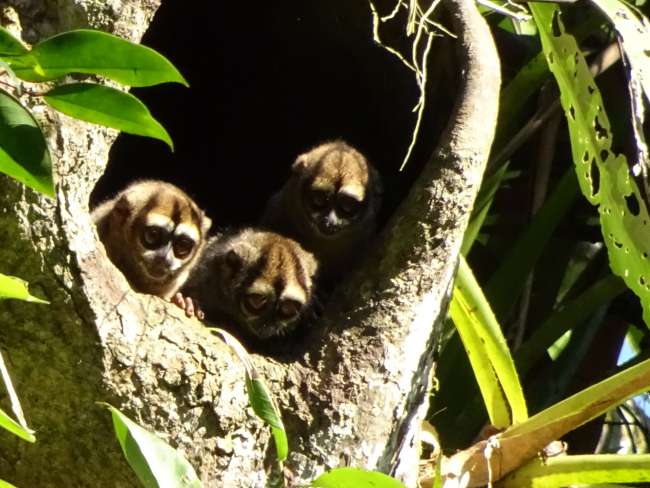
Aithisgean siubhail Ecuador
